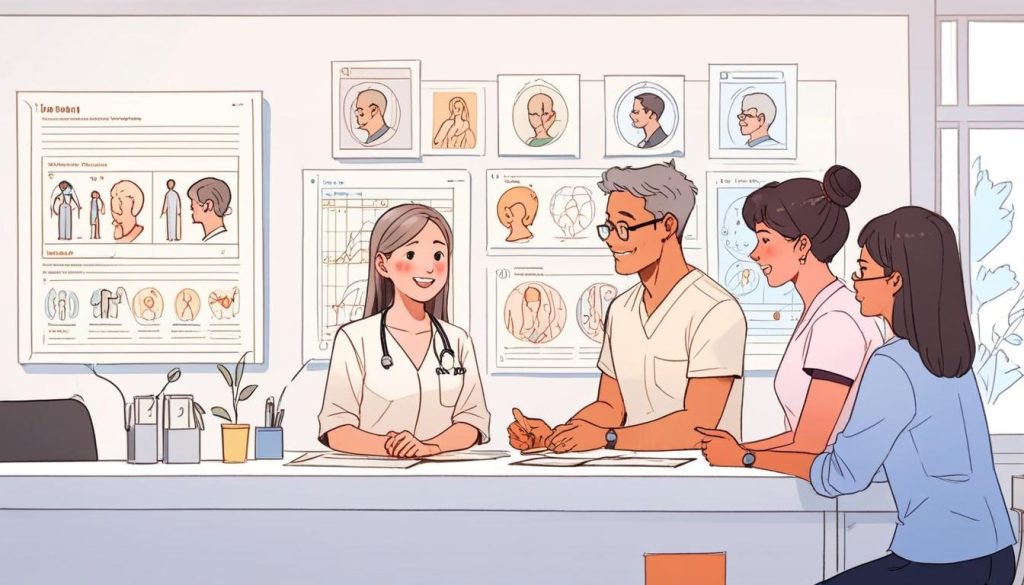**United States**: Hearing loss affects 37.5 million adults, with unexpected contributors including dental health, diabetes, and high blood pressure. This article examines various types of hearing loss and emphasizes the importance of consulting healthcare professionals for appropriate treatments when experiencing symptoms of impairment.
Hearing loss is a prevalent health concern in the United States, affecting approximately 37.5 million adults. While many people associate hearing loss with aging or exposure to loud noises, these are not the only contributors. A detailed examination has revealed various unexpected factors that can influence hearing ability, suggesting that individuals may need to review and consider numerous potential causes when experiencing changes in their auditory capacity.
There are three primary categories of hearing loss: sensorineural, conductive, and mixed. Sensorineural hearing loss is the most common form, resulting from damage to the inner ear, which includes the cochlea and semicircular canals. This type is often linked to age, head trauma, or illness. Conductive hearing loss occurs when sound is obstructed from reaching the inner ear, typically due to fluid in the middle ear, an ear infection, or a perforated eardrum. On the other hand, mixed hearing loss constitutes the presence of both sensorineural and conductive hearing loss.
The crucial understanding is that hearing impairment can develop gradually and go unnoticed for some time. Signs such as needing to increase volume levels on devices or frequently asking for repetitions may indicate underlying issues. It is imperative to consider various health factors that could connect to hearing loss.
Research highlights several surprising factors that could affect one’s hearing. For instance, both viral and bacterial infections can contribute to hearing degradation. Common illnesses, like colds or ear infections, may lead to temporary hearing issues. Viruses generally cause sensorineural hearing loss, while bacterial infections, particularly of the middle ear, are associated with conductive hearing loss.
Head trauma also plays a significant role in hearing health. Injuries resulting in damage to ear structures or the brain can impede auditory signals. Even minor incidents can compromise auditory function, making it essential to discuss any head trauma with a healthcare provider if hearing problems are noted.
Dental issues may seem unrelated to hearing, yet infections in the mouth, such as those from tooth decay or impacted wisdom teeth, can lead to inflammation that restricts blood flow to the auditory system, potentially causing hearing loss over time.
Additionally, diabetes poses a risk as individuals with the condition are twice as likely to experience hearing impairment. High glucose levels can adversely affect inner ear nerves, underscoring the importance of maintaining blood sugar levels.
High blood pressure can also impact hearing. Elevated blood pressure may cause temporary hearing loss due to increased blood flow but may also result in more permanent damage if consistently high. Moreover, certain prescription medications are known to be ototoxic, potentially harming one’s hearing or balance. The American Speech-Language-Hearing Association indicates there are approximately 200 medications that can negatively affect hearing.
Recent studies have further linked sleep apnea to heightened instances of hearing loss, with research suggesting that reduced blood flow during sleep can damage the cells essential for auditory function.
In conclusion, while ailments such as head trauma and diabetes are commonly recognised as potential causes of hearing loss, other factors, including dental health, hypertension, and certain medications, can also contribute. Individuals experiencing indicators of hearing impairment are encouraged to consult with healthcare professionals to discern the underlying causes and consider appropriate treatments, from over-the-counter hearing aids to more specialised options tailored to their specific type of hearing loss.
Source: Noah Wire Services

